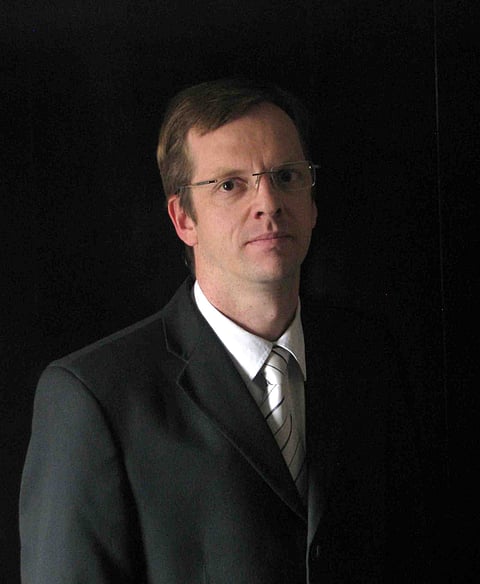Seeking new ways to address Africa’s 600m who need education
When Steve Jobs was looking for someone to write the most important speech of his life, he selected the man who created the brilliant TV series West Wing. As it happens after initially agreeing, Aaron Sorkin was too busy to oblige – and speaking from the heart, the late Jobs produced one of the greatest speeches ever. But we're indebted to Sorkin for one of the smartest slogans for our times. On someone's West Wing desk, a piece of paper was pinned up saying "If you thought education was expensive, try ignorance". We're seeing some of that cost right now in SA where Communist dogma threatens to kill a shale gas golden goose, and hundreds of thousands of jobs, before it even starts. But on a wider scale, Riaan Steenberg argues in this blog that more than half the people on our continent haven't got basic tools. He argues for a re-think. – AH
By Riaan Steenberg*
It's widely accepted that a sound education is the cornerstone of a better future. This applies as much to individuals as it does to countries and, indeed, entire continents. Education is, in many ways, the lifeblood of any economy. It's the only sustainable way to address inequality, overcome poverty and uplift society. For anyone that accepts this as fact, the next statement is bound to be a very bitter pill to swallow.
There are an estimated 600 million people in Africa who still need education!
Due to South Africa's relatively advanced economy and stable political environment, many of these people are looking to this country to obtain the education they need. However, as has become patently clear in recent years, South Africa is not currently in a position to meet the education requirements of many of its own citizens. Clearly, education on our continent is in something of a crisis; and action is needed, quickly to prevent it taking on catastrophic proportions, thereby making it impossible for Africa to realise the potential is has to become a global economic powerhouse.
The typical knee-jerk reaction to any country's, or continent's, education crisis is to suggest that more money needs to be thrown at it. While this might deliver a measure of change, for a developing economy, it's simply not a viable solution. Using the common assumption that tertiary education accounts for approximately 1% of total education needs, Africa currently has 60 million people that need university or post-matric education. So, if the money was available and the continent started building tertiary learning institutions today, it would probably take around 200 years for there to be enough institutions available – and that's just to meet the current demand.
So what's the solution?
The simple answer is that there isn't a simple solution. But as a starting point, Africa needs to start seriously thinking about new ways to educate its people.
Ultimately a more holistic approach is required; one in which the provision of education is inextricably linked to, and closely aligned with, the most appropriate and fastest route to economic advancement and development.
The economic success of the world's developed nations is proof of this basic requirement. Industrial and economic growth can only be fully achieved when you have an educated workforce. Of course this is something of a 'chicken and egg' debacle, because an educated workforce is often only achievable when you have economic investment into education by industry.
At the same time, to deliver both of these interconnected social development cornerstones, a fundamental change is required in the way that learning institutions – particularly in the tertiary environment – see themselves. They can no longer consider themselves to be places where knowledge is acquired and stored (although knowledge acquisition will always be a vital part of what they do). Instead, they need to become places where learning is effectively and, if sustainable, freely shared for the long-term benefit of industry and society as a whole.
There are countries where the effectiveness of such education-driven economic development is clearly evident. Singapore is a case in point. When that country first recognised the role that education could play in driving economic growth, it undertook to transform its education system. This was approached from the point of view of identifying national economic and social priorities and then systematically creating specific education opportunities that would result in a workforce that could help them meet those priorities and develop as a nation.
In South Africa, there is a general awareness of the need to link education to economic development in this way, but this awareness is yet to translate into definitive action. In order for that to happen, the responsibility for education needs to shift from government and a few private learning institutions to all economic stakeholders.
Rather than bemoaning the skills shortages, industry needs to take deliberate and definitive action to address it. Synergies between the government, business and education sectors need to be aggressively explored and acted upon.
As a nation and, indeed, as a continent, we need to recognise the massive potential for vast economic growth that could be unlocked if our continent had access to another 600 million educated, knowledgeable and entrepreneurial individuals. Then we need to stop wishing that were the case and take action to make it so.
The future of our continent depends on it.
* Riaan Steenberg, who has an MBA, is the Director of Global Operations at Regenesys. His core focus is on the growth and expansion of the organisation, both nationally and internationally. Riaan is driving Regenesys' recent expansion into Nigeria, Ghana and India.

